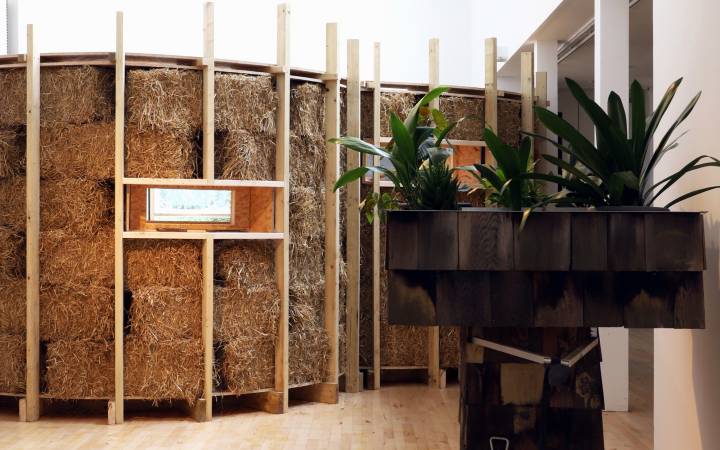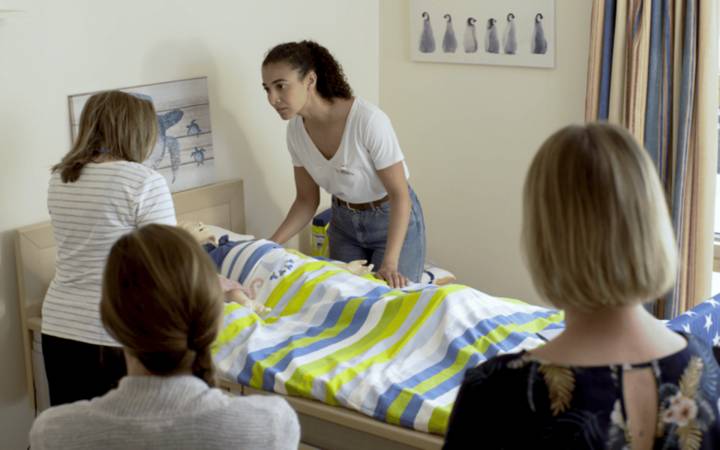Kingston University unveils library of sustainable design resources at Ecobuild
Posted Thursday 24 February 2011
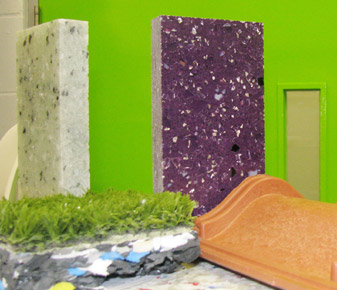 From insulation made from mushrooms to kitchen tops created from recycled glass, Kingston University has catalogued more than 1,000 different sustainable materials for use in the construction industry. The result is a materials library, Rematerialise, which is being launched at EcoBuild, the world's largest event for showcasing sustainable design and construction practices.
From insulation made from mushrooms to kitchen tops created from recycled glass, Kingston University has catalogued more than 1,000 different sustainable materials for use in the construction industry. The result is a materials library, Rematerialise, which is being launched at EcoBuild, the world's largest event for showcasing sustainable design and construction practices.
Reader in sustainable design, Jakki Dehn has been developing Rematerialise at Kingston University's Faculty of Art, Design and Architecture for 17 years and believes designers will find it invaluable when planning new products. "They can come and touch and feel a whole range of materials all in one place - materials which, otherwise, they might have to spend weeks investigating themselves," she said.
Several firms have already drawn on Dehn's expertise to help with ongoing projects. Product design company Jedco, based in Weybridge in Surrey, has developed a scaffolding board made from recycled polymers and a solar-powered bus-stop. "The scaffolding boards have proved useful on oil rigs, because unlike wood, they don't absorb water. So, in this case, the sustainable product is actually better than the material it's replacing," Dehn said.
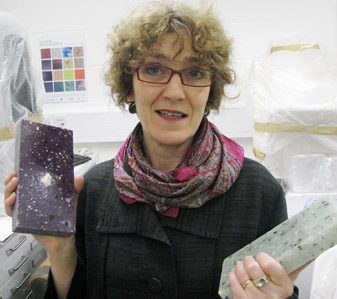 "The good thing about Rematerialise is the sheer breadth of information there. It takes a lot of time to do the kind of research we have to do into materials so we're fortunate to be in touch with someone who has that kind of information," Jedco senior designer Ed Griffiths, a former Kingston student, said.
"The good thing about Rematerialise is the sheer breadth of information there. It takes a lot of time to do the kind of research we have to do into materials so we're fortunate to be in touch with someone who has that kind of information," Jedco senior designer Ed Griffiths, a former Kingston student, said.
Representatives from Marks and Spencer were so impressed by the emphasis on sustainability they invited a group of second year product and furniture design students to help furnish their new headquarters. Kingston's design students have also worked with IKEA, The Prison Enterprise Services and Transport for London.
Dehn began her research into sustainable materials in 1994 and received Arts and Humanities Research Council funding in 2003. Rematerialise now houses more than 1,200 materials from 15 different countries. It contains recycled materials, products made from resources that are very plentiful and easy to re-grow and products made from resources that are not generally used very much. The University hopes eventually to put the entire library online so planners can do initial research before making an appointment to view the materials themselves at Kingston University's Knights Park campus.
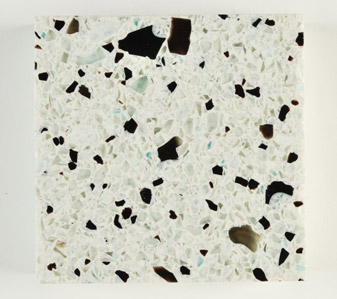 As word about the resource has spread, new products have started arriving on an almost daily basis. "We recently received a new type of insulation material made from mushrooms. The piece we were sent was only an inch thick but, apparently, you could put your hand on one side of it and take a blow-torch to the other side and you wouldn't be able to feel the heat," said Dehn, who admitted she was yet to put it to the test. Another eye-catching material is resilica, which is used to make kitchen worktops as an alternative to granite or formica. It's made mainly of glass recycled from cars and building sites.
As word about the resource has spread, new products have started arriving on an almost daily basis. "We recently received a new type of insulation material made from mushrooms. The piece we were sent was only an inch thick but, apparently, you could put your hand on one side of it and take a blow-torch to the other side and you wouldn't be able to feel the heat," said Dehn, who admitted she was yet to put it to the test. Another eye-catching material is resilica, which is used to make kitchen worktops as an alternative to granite or formica. It's made mainly of glass recycled from cars and building sites.
A selection of the materials will be on display at EcoBuild, at ExCel in London's Docklands, 1 to 3 March. Visitors will also be able to see a selection of products made from sustainable resources such as the REEE chair - made from recycled Playstation consoles.
Contact us
General enquiries:
Journalists only:
- Communications team
Tel: +44 (0)20 8417 3034
Email us
